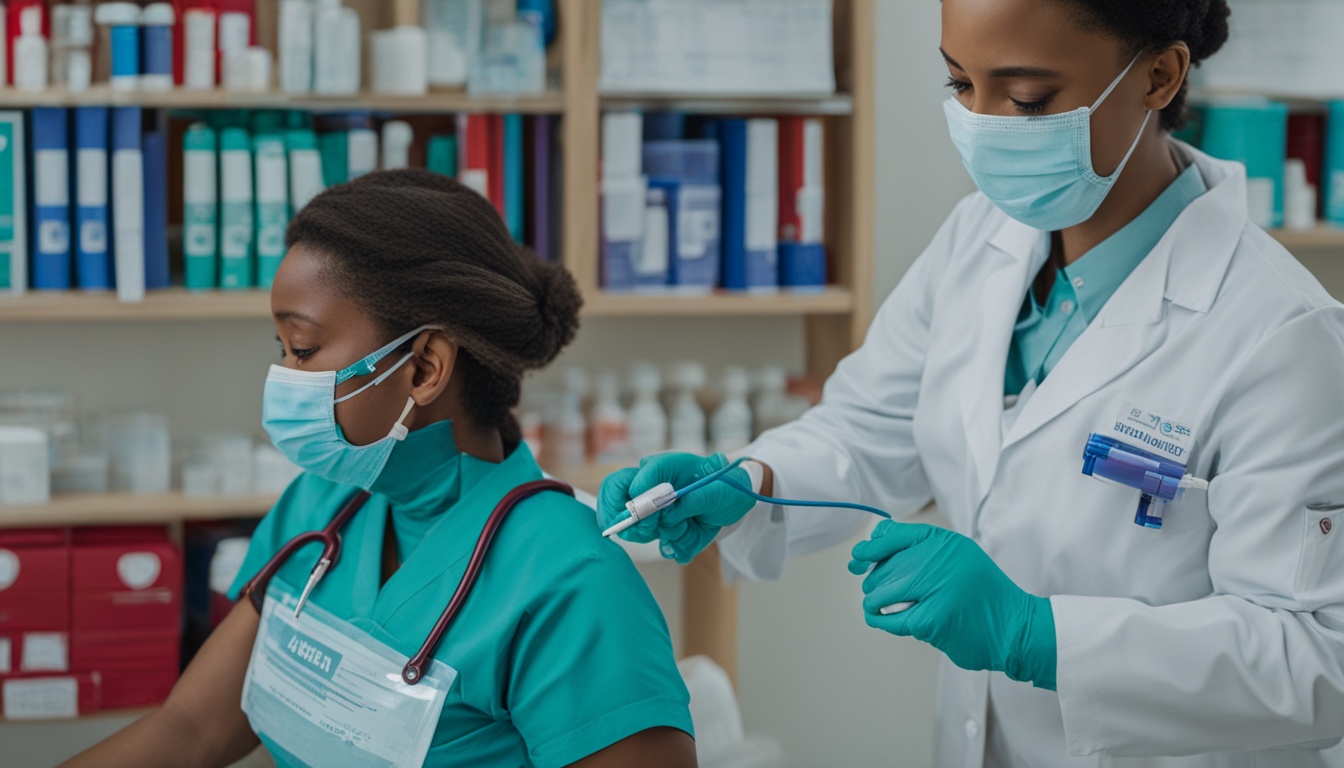Shingles comes from the varicella-zoster virus. That’s the virus that gives us chickenpox. Once you have chickenpox, the virus hides in your body. Later in life, it can pop up again as shingles. This often leads to a very sore rash along one side of the body.
Shingles makes you feel pain, burns, tingles, and is sensitive to touch. It also gives you a red rash, blisters with fluid, and itching. You might also have fever, headache, dislike light, or feel very tired. Doctors can usually tell it’s shingles by looking at the rash and hearing your symptoms.
Getting vaccinated can diminish your shingles risk. The Shingrix vaccine is good for people 50 or older and those with weak immune systems. This shot can make the illness less severe and shorter. It also helps cut the chance of bad outcomes.
Key Takeaways:
- Shingles is caused by the same virus that causes chickenpox.
- Symptoms of shingles include pain, blisters, and itching.
- Vaccination, such as the Shingrix vaccine, can help prevent shingles.
- Early treatment is important to reduce the risk of complications.
- Stem cell therapy is being researched as a potential treatment option for shingles.
Causes and Risk Factors of Shingles
Shingles, or herpes zoster, occurs when the varicella-zoster virus reactivates in those who had chickenpox. This virus may stay dormant for years, becoming active later in life. Certain factors make some people more likely to get shingles.
Weakened Immune System:
A weakened immune system puts you at risk. This can happen with diseases like cancer, or if you have HIV/AIDS. Even stress for long periods can weaken your body’s defenses. Drugs that lower immunity, like those for transplants or autoimmune diseases, also increase your chances.
Age:
Shingles risk rises with age, especially after 50. As we age, our immune system might not handle the virus as well. This makes shingles more likely.
Shingles itself is not directly contagious. But someone with the rash can spread the virus to others who never had chickenpox or a vaccine. This could lead to chickenpox, not shingles. It’s important for those without immunity to chickenpox, either through the disease or a vaccine, to avoid contact with shingles rashes.
Learning about shingles causes and risks can help you lower your chances. Living a healthy life and managing stress supports a strong immune system. This can reduce the risk of shingles reactivation. Seeking medical advice is also important.
| Causes of Shingles | Risk Factors |
|---|---|
| Reactivation of the varicella-zoster virus | Weakened immune system |
| Age (especially over 50) |
Prevention and Complications of Shingles
It’s possible to avoid shingles with a vaccine. The Shingrix vaccine is great for those 50 and up, and for people with weak immune systems. While it may not stop shingles completely, it does make the illness less severe and shorter. It also lowers the chance of getting postherpetic neuralgia, a condition that causes pain even after shingles are gone.
Shingles can lead to serious complications. These include postherpetic neuralgia, which can be ongoing. In some people, the rash might harm the eye, possibly causing vision loss. There’s also a risk of brain inflammation or facial paralysis. And, untreated blisters might get infected with bacteria. Yet, early shingles treatment lowers the risk of these problems by a lot.

